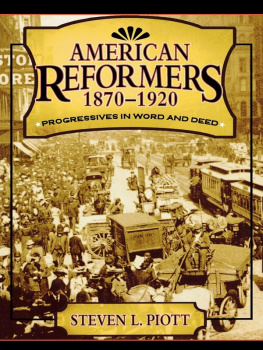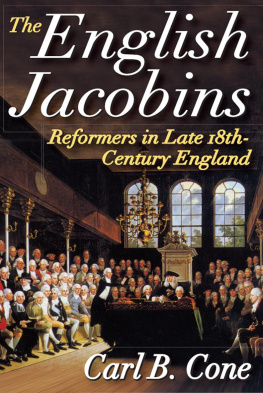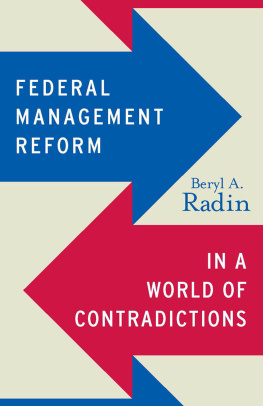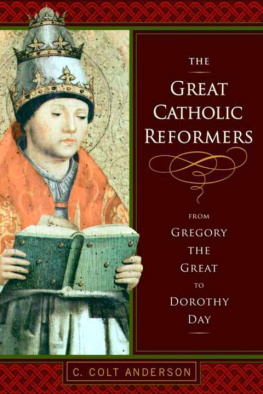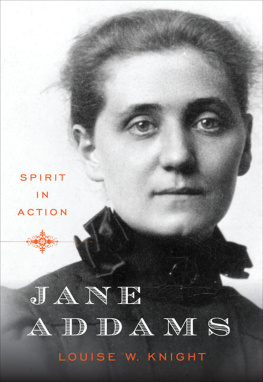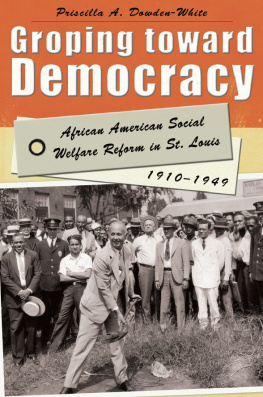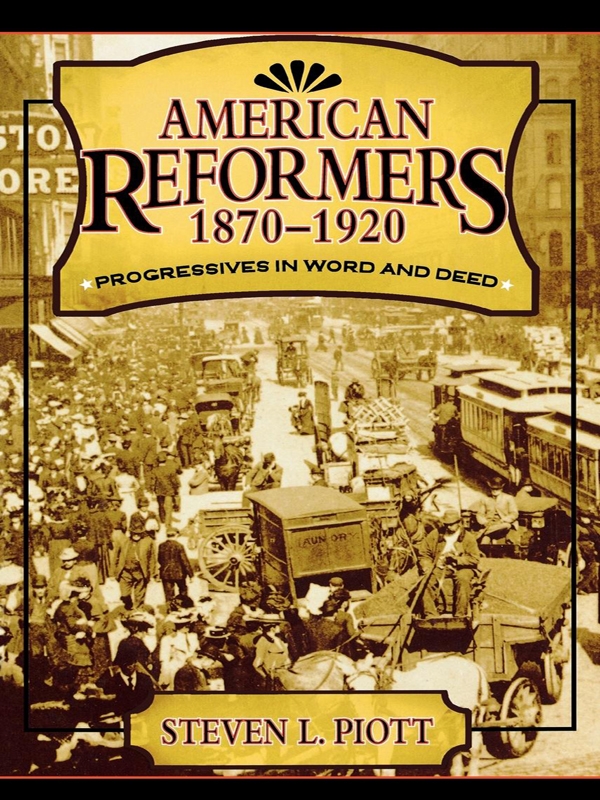Steven L. Piott is professor of history at Clarion University of Pennsylvania. He holds B.A. and M.A. degrees from the University of Utah and his Ph.D. from the University of Missouri. His published works include: The Anti-Monopoly Persuasion: Popular Resistance to the Rise of Big Business (1985); Holy Joe: Joseph W. Folk and the Missouri Idea (1997); and, Giving Voters a Voice: The Origins of the Initiative and Referendum in America (2003). He is a former Fulbright Teaching Fellow at Massey University in New Zealand.
Lester Frank Ward and Reform Darwinism
Few today have ever heard of Lester Frank Ward, let alone have a sense of his place in late nineteenth-century America or his significance to the topic of American reform. He was, however, one of the most diverse and widely read intellectuals of his day in both the natural and the social sciences. He was a botanist, a geologist, a paleontologist, a social statistician, a linguistics expert (he could read Hebrew, Sanskrit, and Latin as well as modern European languages), a social philosopher, and one of the founders of modern sociology. His importance for this study, however, is as a social philosopher and the first of a number of late nineteenth-century thinkers to challenge the assumptions of social Darwinism and laissez-faire individualism that dominated intellectual discourse in the Gilded Age. In doing so, he was able to posit an expansive social theory that others would adapt to their own reform efforts.
The formation of Wards social philosophy was, to a great extent, molded by his life experiences. As one biographer noted, the gulf between the dream and the reality of American experience formed the creative tension within which Ward lived and thought.His life was in many ways a constant struggle to overcome environmental obstacles. His ultimate success enabled him to see himself as the personification of his own democratic social theory. He was born in 1841 as the tenth child of peripatetic parents along Americas rapidly expanding Middle Western frontier. His father, Justus Ward, a mechanic, millwright, and wheelwright by trade, migrated from New York to Illinois in the mid-1830s to help build locks on the Illinois and Michigan Canal that was being constructed between Lake Michigan and La Salle, Illinois. Settling in the small canal town of Joliet, Justus contracted to supply stones for canal construction and, later, to build a towpath bridge over the Des Plaines River swamps. But the entrepreneurial-minded father never kept his family in one place for long and variously worked as a sawmill operator and farmer as he moved his family from Joliet to Cass (now Downers Grove) to St. Charles, Illinois, in search of a better opportunity. Having served briefly in the War of 1812, the elder Ward applied for a land grant as a veteran under a revised land law of 1850 and gained title to a 160-acre tract of land in Buchanan County in eastern Iowa. In true pioneer style, the family made the trip in a covered wagon. Ward later remembered this childhood experience in Iowa as idyllic but intellectually stultifying. The isolation bore the potential of limiting his future prospects:
Roaming wildly over the boundless prairies of northern Iowa in the fifties, interested in every animal, bird, insect, and flower I saw, but not knowing what science was, scarcely having ever heard of zoology, ornithology, entomology, or botany, without a single book on any of those subjects, and not knowing a person in the world who could give me the slightest information with regard to them, what chance was there of my becoming a naturalist?
The death of Lesters father in 1857, after only two summers in Iowa, forced his mother to move the family back to St. Charles, where there were greater opportunities for an inquisitive teenager.
The return to St. Charles offered Lester the advantages of at least a minimal education. After boarding out during the crop season at local farms where he worked doing odd chores and harvesting wheat and corn, Lester attended grammar school during the winter. He remembered the time as one in which he began to read voraciouslyschool primers; French, Greek, and Latin readers; newspapers; and popular dime novels. He even began to keep a diary in French to assist him in mastering the language. When an older brother needed help in his small wagon-hub factory in Myersburg, Pennsylvania, seventeen-year-old Lester, excited by the prospects of economic advancement and broader educational opportunities, decided to move east.
The anticipated opportunities waiting in northeastern Pennsylvania, however, proved disappointing. The recession of 1858-1859 closed his brothers shop, and Lester had to take back pay in wagon hubs that he tried to sell or barter for necessities. Lester returned to work as an itinerant agricultural laborer until he was able to find a job as a teacher in a township school in 1860. The position paid only $6 a month with boarding privileges, but the money he earned, along with loans from relatives, enabled him to attend the Susquehanna Collegiate Institute in nearby Towanda, Pennsylvania, for four terms beginning in 1861. During that time, the young Ward poured himself into his studies, fell in love, and made plans to attend Lafayette University in Easton, Pennsylvania, to study law, although he had doubts that he could find a way to obtain the funds to do so. As the nation slipped more deeply into civil war, Ward made a decision that would ultimately change the direction of his life. He decided to volunteer for the Union army and, on August 12,1862, enlisted in the 141st Regiment of the Pennsylvania Volunteers. The following day, he married his sweetheart, Elizabeth Lizzie Vought, and a week later reported for duty.
Wards service in the army was tragically short lived, but he was able to use the experience to his advantage. At the battle of Chancellorsville, on May 3, 1863, Ward suffered severe wounds when he was shot three times in the legs. After a summers convalescence in a Union hospital and a brief medical furlough, Ward was transferred to the Veterans Reserve Corps, whose duties entailed guarding the nations capital and assisting in the movement of military supplies. The time spent in Washington, D.C., convinced Ward that there were professional opportunities available. After leaving the army on a medical discharge in 1864, Lester and Lizzie settled in Washington. Ward immediately began to press his case for a governmental appointment and, after a great deal of persistence, finally gained a job as a clerk (grade 1) in the Treasury Department examining quartermasters accounts. In doing so, he began what would be a twenty-five-year career in the Washington bureaucracy.
Wards new job offered him more than just security and the possibility of advancement. It also provided him time to read, write essays, and satisfy his growing intellectual curiosity. He joined the temperance society, various debate clubs, and the (Woman) Suffrage League. At home, he and Lizzie played the piano, and Ward learned the violin. The couple read the classics to each other and enjoyed going out to listen to speakers and congressional debates. Life was enjoyable, and Ward, with intelligence and a strong Protestant work ethic, moved rapidly up the bureaucratic ladder. In 1872, he gained promotion to librarian (grade 4) in the Bureau of Statistics, a position he would hold for the next ten years.
As Ward advanced professionally, he also formally resumed his education at night, gaining a bachelor of arts degree from Columbian College (now George Washington University) in 1869, a bachelor of laws degree in 1871, and a master of arts degree with an emphasis on science and certification to practice medicine in 1872. The more Ward learned, the more he wanted to learn. He also began to write articles and to sketch out the foundation for a book on education that he intended to call The Great Panacea. Stealing time from his writing during 18691871, Ward joined the National Liberal Reform League, an ambitious secret society which began with six members and died a few months later with four. The members devoted themselves to the dissemination of liberal sentiment; the opposition to all forms of superstition; the exposition of all fallacious moral and religious doctrines, and the establishment of the principles of mental, moral, and religious liberty, as embodied in the Declaration of Independence. In addition, Ward assumed, in January 1870, the editorship of The Iconoclast, the Leagues journal of opinion. His participation in the League suggests a perception of himself as a freethinker sympathetic to newer trends of thought. But his brief tenure as an editor goading the public to abandon old and embrace new modes of thinking proved to be disappointing and seems to have convinced Ward that it was not the best method to effect social change. Perhaps wrongheaded thinking could better be undermined by the dissemination of knowledge through scholarly writing and teaching rather than direct public exhortation.

